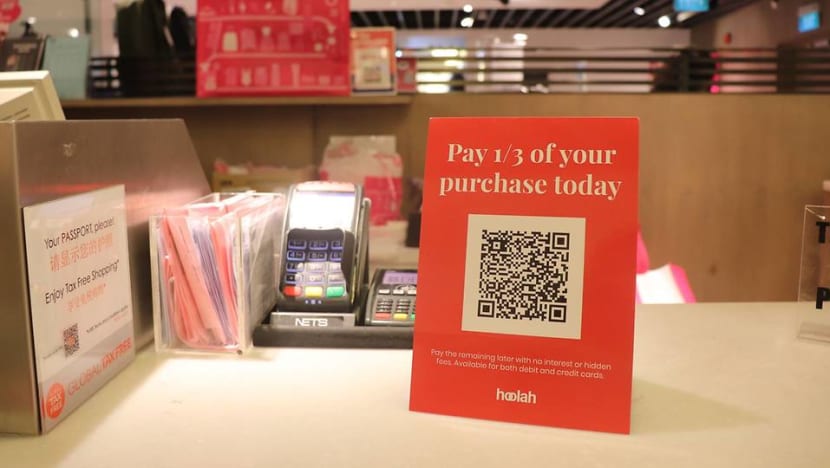MAS assessing if regulatory framework needed for ‘buy now, pay later’ schemes in Singapore

So-called "Buy now, pay later" services like hoolah allow individuals to pay for their purchases over time without interest or service fees charged. (Photo: hoolah)
SINGAPORE: While “buy now, pay later” (BNPL) schemes do not pose significant risk to household debt at the moment, the Monetary Authority of Singapore (MAS) is assessing if a regulatory framework is needed to guide such payment services as they become more widely used.
This includes the adoption of fair dealing practices by BNPL providers, said Senior Minister and MAS chairman Tharman Shanmugaratnam on Tuesday (Oct 5).
“For instance, clear disclosure at the point of account opening is helpful in ensuring that consumers are fully aware of the late fees chargeable if they do not pay on time.”
MAS has been engaging BNPL providers, while reviewing the experience in other jurisdictions where such schemes are more prevalent, he added.
Mr Tharman was responding to parliamentary questions from MP Desmond Choo (PAP-Tampines), who asked about the progress of the central bank’s review of these schemes. The MAS told CNA earlier in March that it was “reviewing the appropriate regulatory approach” for such schemes.
Mr Choo also asked for the current value of BNPL transactions in Singapore and whether such services have resulted in greater indebtedness.
BNPL schemes refer to short-term payment plans that allow individuals to make a purchase and pay for it over time. Instalments are not a foreign concept, but BNPL services allow one to split the cost for small-ticket everyday items, without interest fees and without having to own a credit card.
This alternative payment method, primarily for e-commerce, has seen red hot growth in overseas markets, especially Australia, Europe and the United States, for some time now. It also started to gain traction in Singapore last year as the pandemic pushed more to sell and shop online.
But the ease with which shoppers, especially younger ones, can make purchases through these schemes has stirred concerns among regulators in countries such as the United Kingdom and Australia.
In his written response on Tuesday, Mr Tharman said BNPL schemes currently “do not pose significant risk to household indebtedness” in Singapore given how they are not widely used compared with other payment methods.
Citing industry estimates that put the total value of BNPL transactions here at around S$114 million last year, the minister said this is “a very small fraction” of the S$92 billion in credit and debit card payments made over the same period.
In addition, the current features of BNPL schemes in Singapore are “effective in mitigating the risk of excessive debt accumulation by consumers”, Mr Tharman said.
These include how user accounts are subject to credit limits and will typically be suspended by the BNPL provider once a payment is overdue.
Late payment fees are also typically capped. As BNPL schemes do not charge compounding interest on the outstanding amount, the risk of rapid debt accumulation is also not large, Mr Tharman said.
Including the value of instalments that had yet to fall due, the total outstanding value of BNPL transactions as at end-2020 was about S$12 million.
















